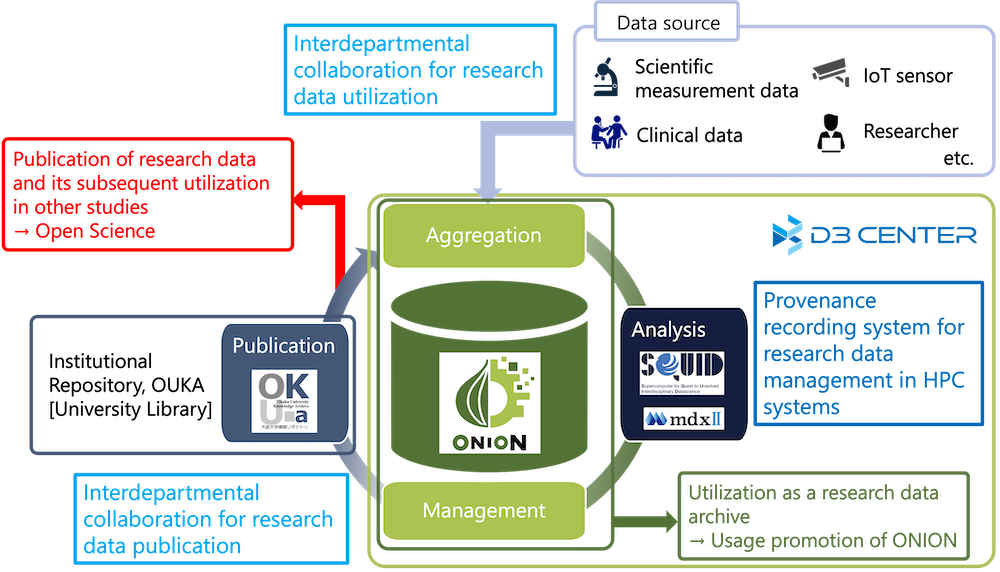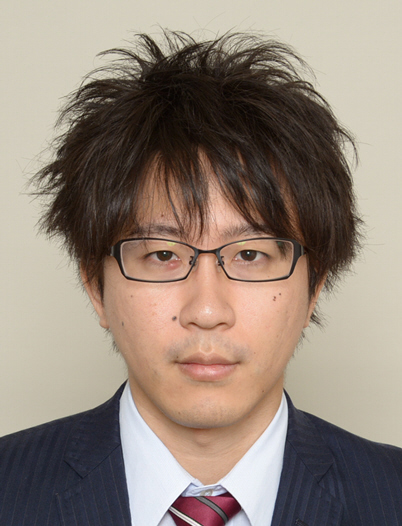In the context of the accelerating trend toward open science, there is a move toward an era in which research data is routinely distributed, shared, published, and utilized. In actuality, however, the methods and infrastructure required for conducting these activities on a daily basis are insufficient. The development of these methods and infrastructure is an urgent issue in academia.
In addition, reproducibility of academic research is becoming increasingly important from the perspective of preventing research misconduct and improving the reliability of research results. Universities and research institutes in Japan and abroad are now in the process of formulating guidelines that set standards for the retention period and management methods of research data created and acquired in the course of research activities, with the aim of promoting fair research activities. An increasing number of academic societies also cite reproducibility as one indicator for the adoption of papers.
Data-driven research is expanding in academic research, and the importance of research data is increasing. At the same time, globalization of academic research and collaborative research across organizations are progressing. Therefore, there is an increasing need for data aggregation and management technologies that enable multiple researchers who are geographically separated from each other to share and manage data, easily handle a wide variety of large-scale and large-volume data, and carry out academic research.
In response to the university's efforts to promote open science, the center introduced a data aggregation infrastructure, ONION (Osaka university Next-generation Infrastructure for Open research and open InnovatioN) on a trial basis. This system aggregates and shares data within the university, promoting data-driven research using the computing center's resources. However, the mechanisms that encourage the publication and utilization of aggregated research data, as well as those that improve reproducibility, are insufficient.
This research group (Research Data Management Team) will promote the following research and development to solve these issues and problems.
- Provenance management system that enhances the reproducibility of research data generated at the computer center
- Research data infrastructures and research data management technologies that contribute to the promotion of the publication and utilization of research data.
 Fig. Purpose of the Research Data Management Team
Fig. Purpose of the Research Data Management Team
Research subjects
- Research and Development of a Provenance Recording System for Improving Reproducibility of Research Data
(Principal Researchers: Yuta Namiki & Dai Hanada) - Research and Development of a Module Designed to Facilitate the Process of Submitting Applications for the Publication of Research Data in Institutional Repositories
(Principal Researcher: Hideyuki Tanushi) - Research and Development of a Metadata Management System to Promote the Utilization of Experimental Research Data
(Principal Researcher: Hideyuki Tanushi)
Team members
Supervisor

Takeo Hosomi, Guest Associate Professor (D3 Center), NEC
Researchers

Yuta Namiki, NEC

Dai Hanada, NEC

Hideyuki Tanushi, Specially Appointed Researcher, D3 Center[researchmap]